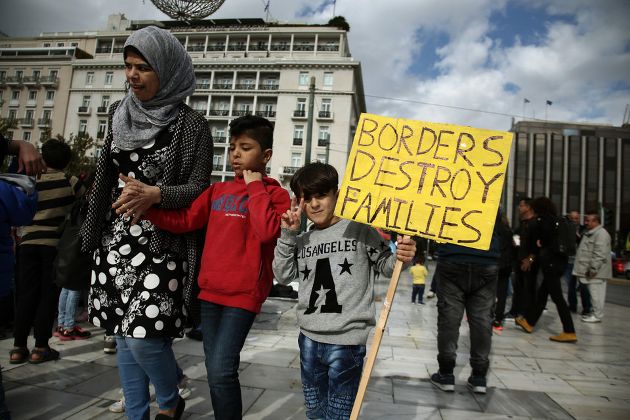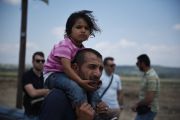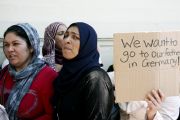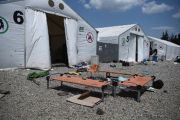-
 EBRD reports highlights demographic headwinds Greece has to navigate
EBRD reports highlights demographic headwinds Greece has to navigate
-
 OECD report highlights stark contrasts in health system
OECD report highlights stark contrasts in health system
-
 Greece’s 14–29s: Ambitious, anxious and lacking trust
Greece’s 14–29s: Ambitious, anxious and lacking trust
-
![Photo by Myrto Papadopoulos [www.myrtopapadopoulos.com] Photo by Myrto Papadopoulos [www.myrtopapadopoulos.com]](resources/toolip/img-thumb/2013/11/05/younggreeks_1000_myrto_0411-small.jpg) Survey charting young voters presents diverse fractures and politics
Survey charting young voters presents diverse fractures and politics
-
![Photo by Can Esenbel [http://www.mundanepleasure.com/] Photo by Can Esenbel [http://www.mundanepleasure.com/]](resources/toolip/img-thumb/2014/02/12/peopleblur_agora_esenbel-small.jpg) Survey attempts to map current contours of progressivism in Greece
Survey attempts to map current contours of progressivism in Greece
-
 Greeks crying out for political change but doubt it will happen, poll finds
Greeks crying out for political change but doubt it will happen, poll finds
EU-Greece island containment policy slammed as refugees endure squalid winter camps

The Greek government has been criticised for a containment policy which restricts refugees to the islands, and for failing to provide adequate shelter to those who are stranded there as winter sets in.
In a joint statement, 20 human rights and aid groups called on the government to end its containment policy, highlighting the extremely overcrowded and unsafe conditions that refugees are forced to endure on the islands.
This is the second winter that this issue has been raised. Last year, at least three people died in Greek camps from hypothermia as a result of inadequate protection from freezing weather, and overcrowding. In one incident on the island of Lesvos, a cooking stove exploded, killing two and causing widespread fire damage.
Despite the tragedies of the previous winter and having adequate time to winterise the camps, the Greek government appears to have done little to deal with the harsh winters that the islands are subject to.
An extensive report by the Guardian earlier this year put estimates of aid funding received by Greece at around 803 million dollars since 2015, representing the most expensive humanitarian response in history. However, as the report found, much of this money has been wasted or squandered amid slow and poorly thought out responses by Greek government authorities, bureaucracy and bickering between large NGOs, the EU and the Greek Ministry of Migration over who is to blame for the situation. It was also reported by the Guardian that various amendments passed in the Greek parliament removed the need to audit contracts related to the refugee crisis, making the money trail of donations in Greece even harder to follow.
While control of camps has until now shifted between NGOs, the military and the government, the Ministry of Migration holds the ultimate responsibility for giving the go ahead to actions such as camp winterisaton.
Overcrowding
The latest statement, spearheaded by Human Rights Watch (HRW), revealed that several of the NGOs had requested a meeting with Prime Minister Alexis Tsipras to discuss the conditions, but had yet to receive a response. Local island mayors, including Lesvos mayor Spyros Galinos, have also been calling on the central government to alleviate the conditions on their islands.
The mayor called a general strike this week in protest against the government and EU’s containment policy. “Lesvos is not an open prison, nor will we allow anyone to view it as such,” Galinos said. Nearly 7,000 refugees are currently stranded on the island, the camps of which host a maximum of 1,500.
Although slowing down since last year, arrivals have continued on Lesvos, Chios, Samos, Kos, Leros, Rhodes and other Aegean islands. Conditions of overcrowding are rife, with many, including children and vulnerable groups, forced to live in flimsy summer tents without heating, or protection from the elements.
“Nothing can justify trapping people in these terrible conditions on the islands for another winter,” Eva Cosse, Greece researcher at Human Rights Watch said in the statement. “Greece and other European Union member states should act urgently to remove the obstacles to people getting the care and assistance they need on the Greek mainland.”
According to HRW, as of November 20, 10,925 people are living in facilities meant to hold 3,924. HRW also pointed out the danger that the conditions pose to vulnerable groups. “Some women are forced to share tents with unrelated men, putting their privacy and safety at risk.” they said.
EU Turkey deal
Deportations under the EU-Turkey deal, which was designed to send back failed asylum seekers to Turkey, have been far outpaced by continued arrivals and the slow family reunification process. The latest data from the UNHCR, dated up to November 19, shows that over 26,000 people arrived in Greece in 2017. Nearly 5,000 of those arrived in October alone.
HRW noted that the containment policy was being implemented in response to the EU-Turkey deal, and as such the European Commission and EU member states needed to address the conditions on Greek islands, reverse the policy and respect the dignity of those seeking refuge on EU territory.
Nicola Bay, head of Oxfam in Greece said in the statement that by trying to preserve the EU-Turkey deal, Greek islands “have been transformed into places of indefinite confinement for asylum seekers who have risked their lives in search of safety and a better life in Europe.”
“The EU and the Greek government need to start putting people’s lives ahead of politics and uphold Europe’s commitment to human rights.” she concluded.
The Greek government appears so far unwilling to risk upset by directly addressing Turkey’s president Erdogan over stemming the flow of irregular arrivals from Turkey to the Greek islands.
In the face of growing criticism of the fallout from the EU-Turkey deal, Tsipras defended the agreement during a visit to Paris, saying in comments to Figaro newspaper that the deal was difficult but necessary.
Desperation
Control for running the camps was taken over by the Greek government from NGOs in August this year. The decision, which directed EU funding to Greek authorities rather than NGOs, prompted many NGOs to scale back their operations or withdraw altogether. In light of slowing refugee flows, the EU announced earlier this year that it would be cutting emergency funding to Greece in a move that was widely condemned by NGOs working with refugees.
Refugees on the mainland and on the islands have resorted to increasingly desperate measures to highlight their plight. There has been a notable rise in self-harm, suicide attempts and suicides as despair takes hold. In March this year, a Syrian refugee in Chios’s Vial camp set himself on fire in protest at the conditions. He later died of his injuries.
In early November, seven men and seven women went on hunger strike in Athens’s Syntagma Square in protest against the conditions in refugee camps and the slow pace of family reunifications. The strike ended after two weeks when poor weather forced the strikers to dismantle their protest camp.
NGOs have also warned that the current state of affairs in Greece is forcing people to turn to human traffickers to be smuggled out of Greece, leaving them open to exploitation and extremely risky journeys.
 Greek media often sensationalised coverage of refugee crisis, study argues
Greek media often sensationalised coverage of refugee crisis, study argues  Refugee returns to resume despite concerns over rights and conditions
Refugee returns to resume despite concerns over rights and conditions  SYRIZA feeling internal pressure due to handling of refugees
SYRIZA feeling internal pressure due to handling of refugees